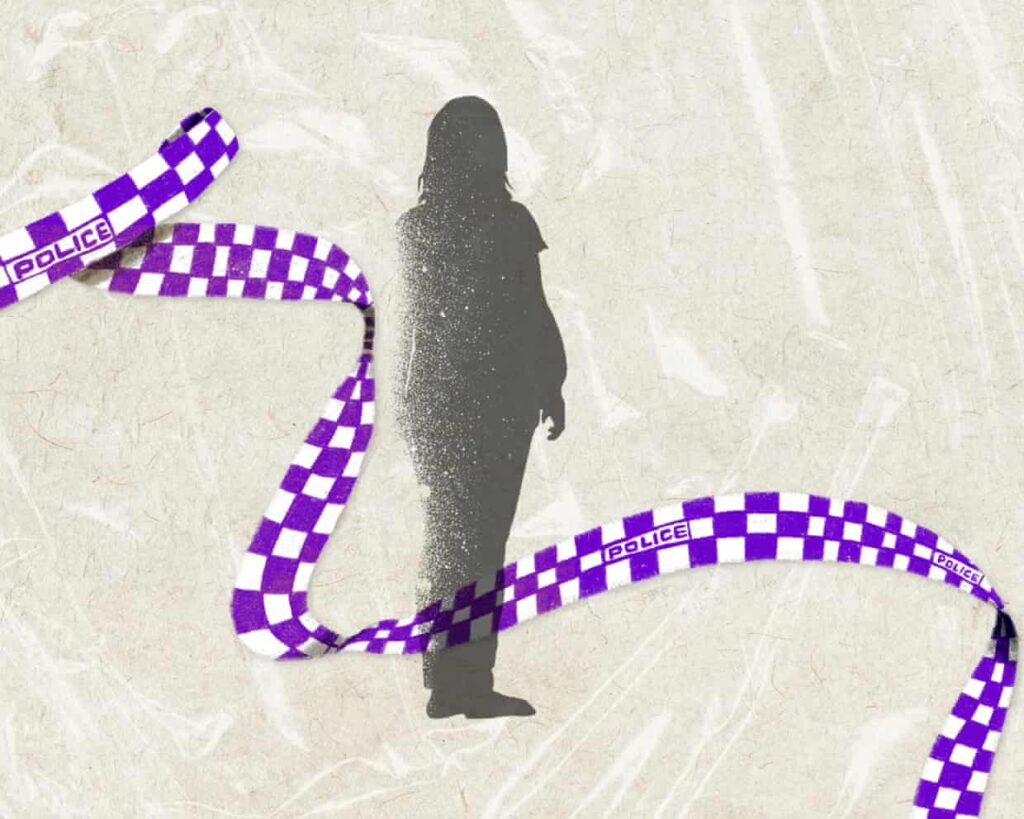
The tragic death of Kardell Lomas, a woman who was killed alongside her unborn child in Ipswich just three months after seeking help from support services, has sparked outrage and highlighted significant systemic failures in the response to domestic violence in Australia. Lomas had repeatedly reported her partner’s escalating violence, which included threats and stalking, yet her pleas for help were not met with the necessary protective measures.
In the time leading up to her death, Lomas had tried numerous times to escape her abusive relationship. She had disclosed to support services that she suffered from severe violence, including strangulation, and felt increasingly endangered. Lomas’s situation deteriorated further when she attempted to reach out for assistance at a support service, where she ultimately passed a note to staff requesting that they call the police on her behalf. This act was a poignant display of courage, demonstrating her urgent desire to flee to safety.
When police arrived, however, their response was disheartening. Bodycam footage released to Guardian Australia shows police officers joking with Lomas’s abuser, despite his known history of violence. Lomas, visibly fearful and withdrawn, was treated dismissively. One officer remarked to her abuser, “To be honest, mate, I’m not even sure why we got called either.” This attitude exemplified a troubling pattern in how police perceived domestic violence situations, often viewing victims and perpetrators as equally culpable.
Lomas’s heartbreaking words, “I’m sorry for the fuck around,” conveyed a sense of shame that should not belong to her. It reflects a broader societal message directed at women, particularly black women, who often feel the need to apologize for seeking help. This dynamic contributes to the systemic issues surrounding violence against marginalized groups, whose experiences are frequently overlooked or minimized.
Three months later, Lomas’s body was discovered in a car at her home. Her partner was subsequently sentenced to 14 years for manslaughter, yet many argue that this is far from justice. The circumstances of her death reveal not only an individual failure but also a systemic one, where the state apparatus failed to protect her from an abusive partner. This raises critical questions about the role of law enforcement and social services in safeguarding vulnerable individuals.
The term feminicide is particularly relevant in this context, as it encompasses not only killings motivated by gender but also the state violence that targets women, particularly black women in Australia. Lomas’s case exemplifies how systemic issues can exacerbate individual situations of violence. The refusal of the Queensland coroner to conduct a thorough investigation into her death further illustrates the barriers faced by Aboriginal women in seeking justice. The coroner’s findings suggested that Lomas’s “mistrust” in services contributed to her vulnerability, dismissing the failures of the state to protect her.
Dr. Amy McQuire, a Darumbal and South Sea Islander academic, has been vocal about the inadequate responses to violence against Aboriginal women. Her advocacy highlights the need for a more profound examination of how systemic racism impacts the treatment of these women in the justice system. The recurring theme of missed opportunities in cases like Lomas’s reflects a troubling normalization of violence against marginalized groups, where their deaths are seen as inevitable rather than preventable tragedies.
As Australia grapples with the implications of Lomas’s death, it is essential to recognize the broader societal responsibilities in addressing domestic violence. Each instance of violence against women must be treated with urgency, and systemic barriers that perpetuate these cycles of abuse must be dismantled. The lives of women like Kardell Lomas and her unborn child should remain at the forefront of discussions surrounding domestic violence and systemic reform.
For those affected by domestic violence, support is available. Indigenous Australians can contact 13YARN at 13 92 76 for crisis support, while Lifeline can be reached at 13 11 14. The national family violence counselling service is available at 1800 737 732, and resources for international helplines can be found at www.befrienders.org.







